COVID-19 Update: Impacts on St. Lucian Life
The lockdown order in St. Lucia creates the greatest hardship for the most impoverished residents, as is true around the world. While the country has reported only 18 COVID-19 cases to date, most people in our partner community can’t stay at home as required, because their homes lack indoor plumbing, and water for consumption and bathing must be obtained in communal facilities. The result? St. Lucia Country Manager Chemida (Chem) Popo-Cox speaks with Volunteer Engagement Manager Maggie Bjorklund about current conditions in Anse la Raye.
COVID-19 Arrives on the Island
The reaction to the first case of COVID-19 on March 13 in a woman returning from the United Kingdom was initially lukewarm. The following day, the government ordered all schools to close indefinitely. St. Lucians were told to exercise social distancing and avoid all unnecessary travel. But, Chemida observed, “life seemed to continue normally,” with few using face masks or observing other guidelines.
However, after an additional COVID-19 case had been confirmed on the island a week later, Prime Minister Allen Chastanet suspended nonessential commercial activity and imposed a nighttime curfew until April 5.
“Immediately following the announcement, many villagers rushed to the public stand pipes to fetch water for their homes, while expressing their disapproval of the sudden shutdown,” said Chemida. “They argued that no provision was made for them before the curfew was enforced. So, they turned to social media to voice their concerns.”
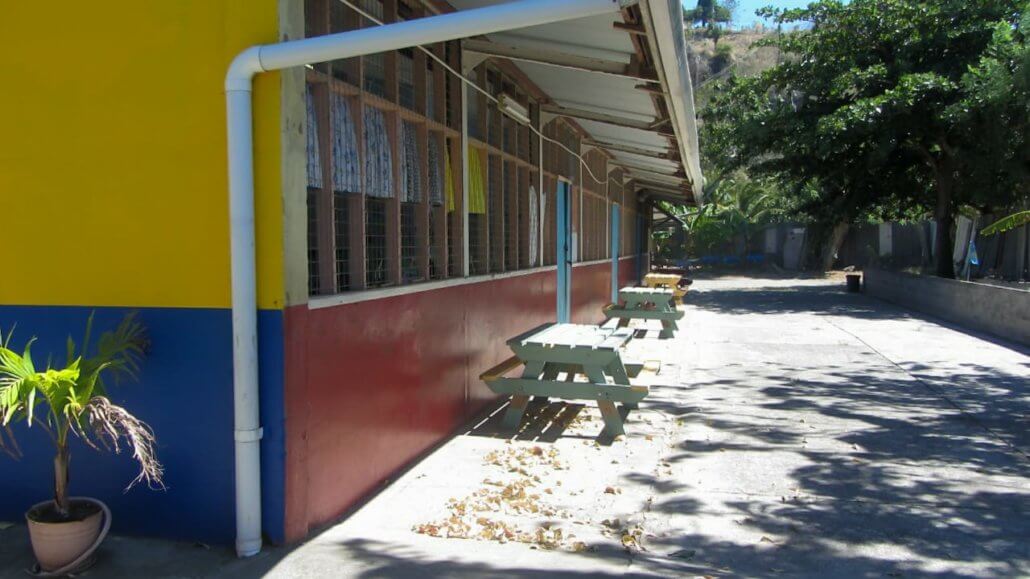
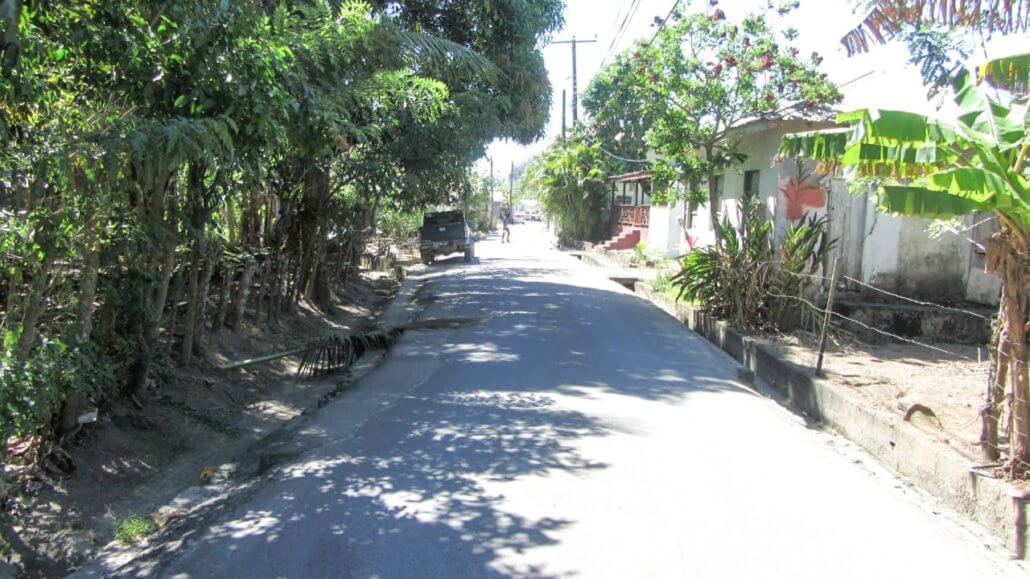
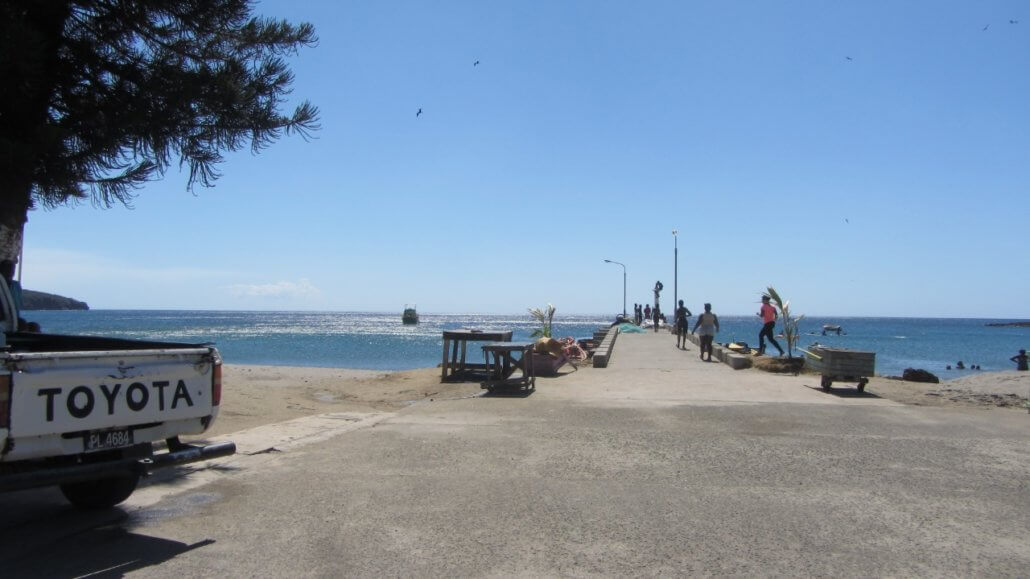
The Island Struggles With a New Reality
Anse la Raye isn’t well-suited for a lockdown. Homes are small and close together, with shared yards. Toilets, baths, and laundry tubs are accessed in public facilities. Few people are financially able to purchase food in bulk. Not ideal for “social distancing.” But soon the curfew was extended, and the island entered a partial shutdown with fines and imprisonment imposed for violators. “The island was divided into a northern and southern zone,” Chemida explains. Only essential services workers who obtain passes were allowed to travel between zones.
Meanwhile, on April 1, stores and bakeries were allowed to open for a limited time – every three days for a few hours. “Again, the government had to revise the total lockdown, as villagers would not survive,” Chemida says. “This allowed them to obtain groceries to take them through a week of confinement. Most homes are too small to store much food or to contain people,” she continued. “The police oversee those transactions to ensure all protocols regarding social distancing were observed.”
The police also supervise bathing, laundry, and drinking water appropriation. “Most residents of rural villages like Anse la Raye rely on public facilities,” Chemida continued. “So, locking them up for an extended period of time can create serious issues with health and sanitation. Villagers are allowed to go to the bath two hours in the morning and two in the afternoon, under police supervision.”
Extreme Measures Contains the Virus
Chemida asserts: “Although some of the measures to combat the spread of COVID–19 may be considered harsh, with only fifteen cases and zero deaths, islanders are thankful because the strategy is working.”
She counts herself among those grateful islanders. “Life for me personally has only a few changes. Mainly, it’s tough not being able to visit with my family and friends and to go on recreational activities such as nature tours. However, I still continue to work from home for Global Volunteers and was able to obtain a government pass to continue farming.” She regrets her son who finished school in Brooklyn, NY, wasn’t able to return home before travel restrictions were imposed. “He goes out only to run essential errands,” Chemida sighs. “My daughter, who lives with me, spends her days attending school on line. She keeps busy with studying, researching, and learning Spanish and French.”
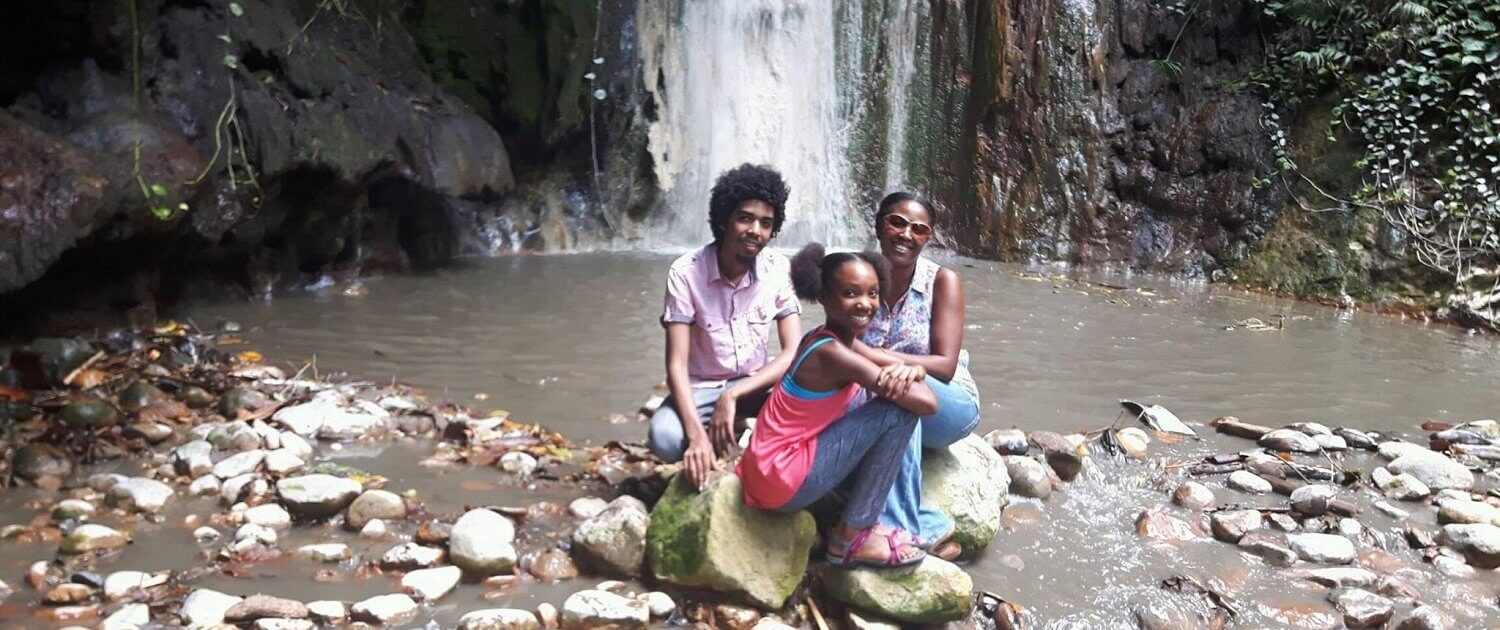
A teacher by profession, Chemida says it’s hard, nevertheless, to not be able to help needy children during the lockdown. “What has impacted me most is the inability to directly serve my community, especially to provide the children with the help that they so greatly need. That’s where we miss volunteers to help fill that void. They’ll be more important than ever to help the children of Anse la Raye with their learning once they are back in school.”
What’s Happened to Students and Teachers?
Students Global Volunteers serves were supposed to transition to online learning, but the reality is that the majority of students don’t have access to a device to be able to connect. Classes are taught through various means of communication – radio, television, and internet. However, on an island with a poverty rate of 25% (according to the World Bank), most students simply do not have the means to attend class online. In an attempt to assist with this problem, the Ministry of Education is now asking for laptop donations from able St. Lucians.
Flavian Isembert, the Principal of Anse la Raye Primary School, said remote learning is very difficult to implement. “In some cases there is a 100% participation, but the challenge is the lack of devices. Some teachers are also finding it difficult to work solely from a phone, and the Zoom connections don’t always allow for a full session,” he laments.
Looking ahead, he said both devices and volunteers will be necessary so students can catch up. “Come September, each child will need a device, the lab will need computers, and also each classroom needs a television. Typing classes and introduction to the computer will become a must as a subject.”
He says he’s eager for volunteers to return. “Over the years, we have seen students’ reading and comprehension levels improve” with the help of volunteers, he writes to Global Volunteers. “Many students who have gotten the support from the volunteers were able to move to secondary schools, as they were able to read at an accepted level.”
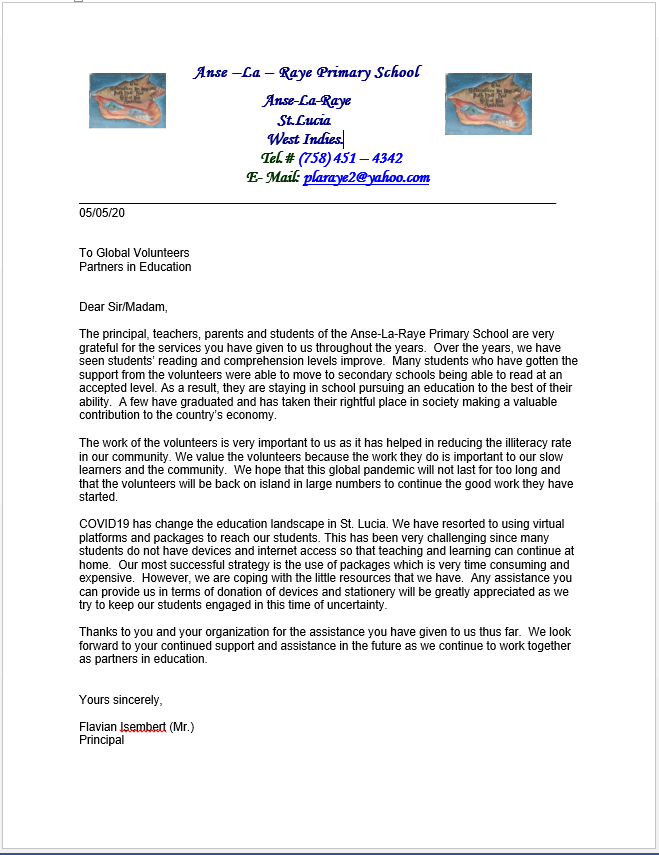
“We hope that this global pandemic will not last for too long and that the volunteers will be back on island in large numbers to continue the good work they have started.”
– Flavian Isembert, Principal, Anse la Raye Primary School
What Comes Next?
The island isn’t “sleepy” anymore, Chemida says. The already weak economy has come to a complete standstill. Everyday life, she says, has experienced an abrupt change, which is sure to bring new consequences.
“Although we live in an area with little economic activity and few opportunities for upward mobility, we have learned to live happily and openly,” Chemida explains. “Our days were usually spent outdoors along our streets, yards, and beaches conversing with our friends in loud voices and hearty laughter while we shared whatever food we had with our neighbors. We thrive on social interaction to cope with life’s daily challenges.”
“We thrive on social interaction to cope with life’s daily challenges.”
– Chemida Popo-Cox, St. Lucia Country Manager
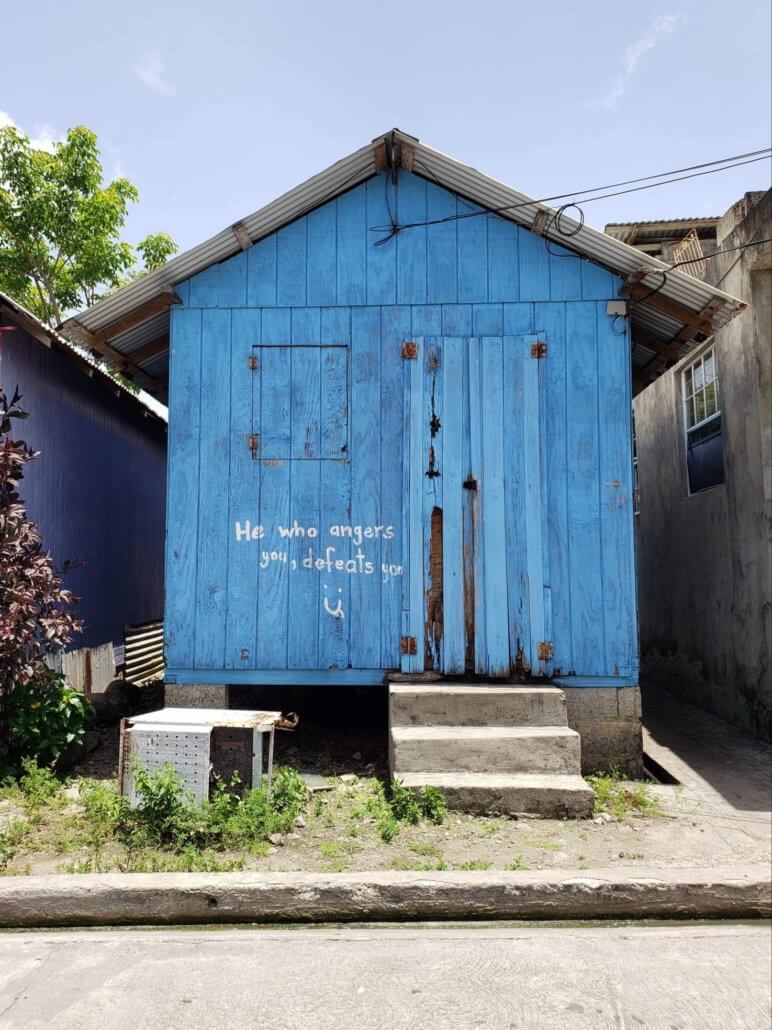
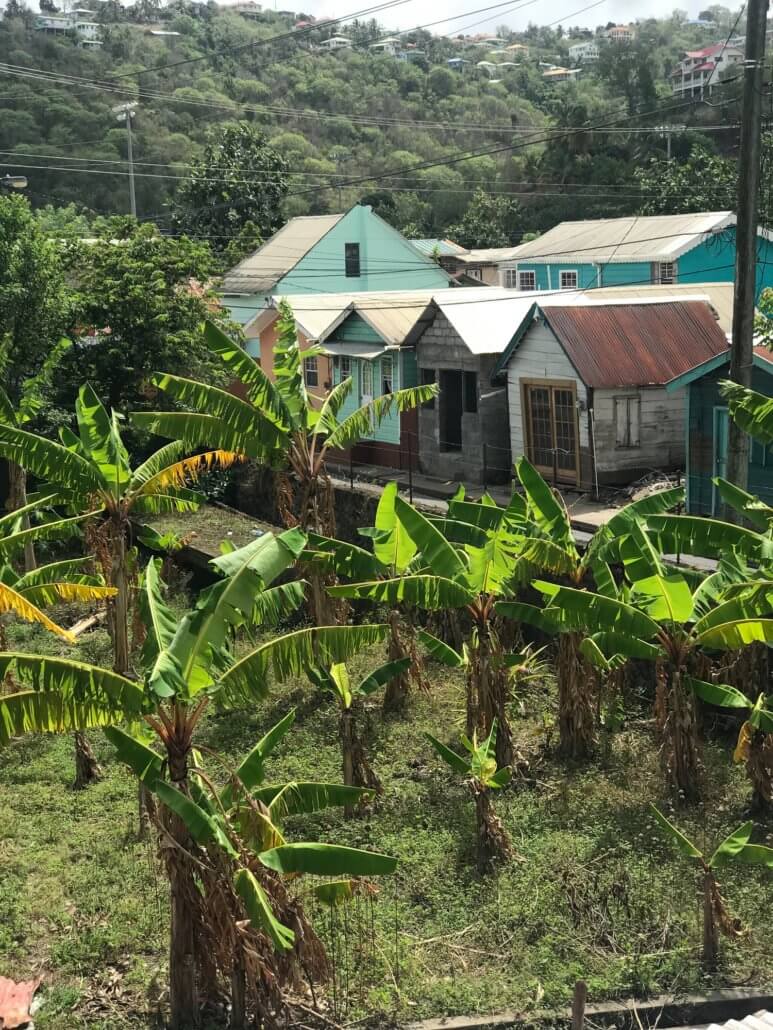
The lively interactions have ended. “Our village has become unusually quiet. The loud music has died, food vendors no longer line our streets, no lively crowds are seen or heard, women are seldom seen sitting to chat with friends on their door steps and only a few people are seen outside. The place seems strange,” reports Chemida.
“Earning a dollar has become harder for most villagers, because most who were employed in tourism and its related activities, have no work,” she says. “They and their dependents face a future of uncertainty. Our children are now schooled at home via virtual means and most parents do not have the resources or capability to enable their children to thrive in such an environment.”
“Our children are now schooled at home via virtual means and most parents do not have the resources or capability to enable their children to thrive in such an environment.”
– Chemida Popo-Cox
The “new normal” is staying at home and observing social distancing, Chemida says. The majority now limits outdoor activities as much as possible. The government has slowly begun to lift some bans.
You may also like:

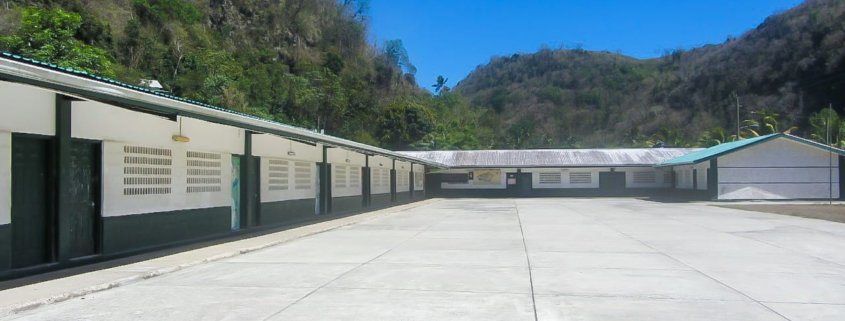


Leave a Reply
Want to join the discussion?Feel free to contribute!